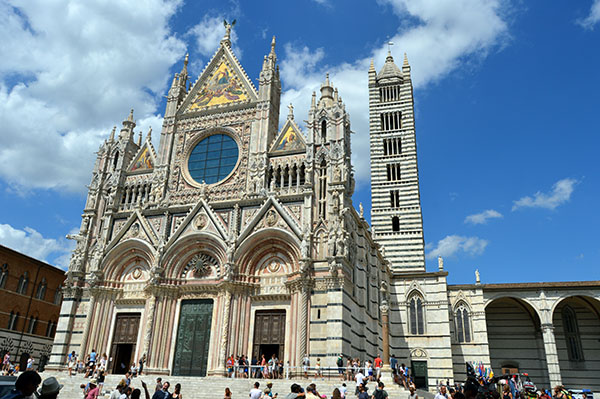Whereas the Hebrews provided an ethical religion for the West (in the form of Judaism and the idea of a monotheistic religion with a code of ethical behavior), the Ancient Greeks provided an ethical philosophy focused on the rights and responsibilities of the individual in a civil state. Both focused on the role of the individual (and not community responsibility for what happened), and both complemented each other (ethical irrationalism in the form of religion and ethical rationalism in the form of philosophy) when merged later in Christianity. Not sure if that makes much sense.
As the fortunes of political Rome declined, the fortunes of Christianity--one might say "spiritual Rome"--rose. And over the course of the first five centuries of the new common era--Historians use CE (of the common era) instead of AD (in the year of the lord) to denote dates after the year "0"--the newly-developing Christian church gradually assumed responsibility for the political activities of the Roman government as Roman administration disintegrated, thus ensuring that the Christian church that emerged became, in reality, a lasting vestige for the Roman empire. For example, the church assumed duties ranging from minor, such as recording legal documents of births, marriages and deaths, to major functions such as arranging the military defense of cities and towns. Over time, Christianity evolved from an extremely small, obscure Near Eastern religious sect to become one of the world's major religions.
When studying the origins of Christianity, it is very important to remember that Jesus of Nazareth was born into and grew up within the Jewish faith. During his ministry, he repeatedly averred that he had come not to destroy the law, i.e., Judaism, but to fulfill it, thus linking himself with the earlier Judaic prophets who had also embarked on a reform mission stressing the ethical responsibilities (as opposed to the formulaic sacrificial activities) of the religion. The earlier prophets had urged the Jewish people to do more than just perform rituals and uphold the letter of the law. Instead, both Jesus of Nazareth and the prophets maintained that people should be guided by the spirit of the law, not just the letter of the law. For example, according to Jesus of Nazareth, it was not enough simply not to kill someone. What was required was the complete absence of anger, "do to others as you would have them do to you".
Some recommended online lectures and websites
- Early Christian Writings: All of Early Christianity (New Testament, Apocrypha, Gnostics and Fathers). This is an excellent resource for studying the history of the early Christian church.
- The Development of the Early Church by Charles Kimball. See also his In the Shadow of Rome where he writes about the journeys of the Apostles.
- Early Church
- See also the two online videos by Professor Sheda Vasseghi, NVCC, on Zoroastrianism and Mithraism, which did have an influence on early Christianity.
- Gary Gutting, Returning to the Sermon on the Mount
- For extra credit please suggest to your instructor a relevant website for this unit of the course. Send the title of the site, the URL and a brief explanation why you find the information interesting and applicable to the material being studied in this unit.
